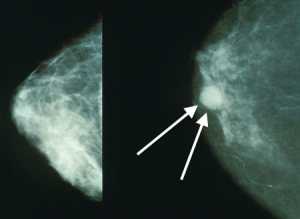Author Interviews, Cancer Research, Genetic Research / 18.12.2019
New York State Clinical Laboratory Program Approves +RNAinsight™ To Enhance Genetic Testing for Hereditary Cancers
MedicalResearch.com Interview with:
Dr. Aaron Elliott, PhD
CEO
Ambry Genetics
Dr. Elliott discusses The New York State Clinical Laboratory Evaluation Program (CLEP) approval of +RNAinsight™, a new genetic test for hereditary cancer risk.
MedicalResearch.com: What is the background for this announcement? What types of cancers can be genetically tested for predisposition? To whom should the testing be offered?
Response: The New York State Clinical Laboratory Evaluation Program (CLEP) has approved +RNAinsight™, which enables clinicians – for the first time ever – to conduct both DNA and RNA genetic testing at the same time. This is the first genetic testing advancement in over a decade to significantly increase the diagnostic yield (meaning the number of patients identified with a specific hereditary risk for cancer) in genes like BRCA1 and BRCA2. With +RNAinsight, Ambry is the first and only lab to offer this paired RNA and DNA genetic testing.
Genetics may contribute to individuals’ risk of developing a number of cancers, including breast, ovarian, prostate, colorectal, and others. Approximately five to 10 percent of cancer cases are hereditary, according to the National Cancer Institute. The National Society of Genetic Counselors (NSGC) guidelines indicate who should receive genetic testing to learn whether they have increased risks to develop hereditary cancer. For example, someone with close family members who developed cancer at young ages may be a good candidate. (more…)






























 Dr. Helen Marsden PhD
Skin Analytics Limited
London, United Kingdom
MedicalResearch.com: What is the background for this study?
Response: In this technology age, with the explosion of interest and applications using Artificial Intelligence, it is easy to accept the output of a technology-based test - such as a smartphone app designed to identify skin cancer - without thinking too much about it. In reality, technology is only as good as the way it has been developed, tested and validated. In particular, AI algorithms are prone to a lack of “generalisation” - i.e. their performance drops when presented with data it has not seen before. In the medical field, and particularly in areas where AI is being developed to direct a patient’s diagnosis or care, this is particularly problematic. Inappropriate diagnosis or advice to patients can lead to false reassurance, heightened concern and pressure on NHS services, or worse. It is concerning, therefore, that there are a large number of smartphone apps available that provide an assessment of skin lesions, including some that provide an estimate of the probability of malignancy, that have not been assessed for diagnostic accuracy.
Skin Analytics has developed an AI-based algorithm, named: Deep Ensemble for Recognition of Malignancy (DERM), for use as a decision support tool for healthcare providers. DERM determines the likelihood of skin cancer from dermoscopic images of skin lesions. It was developed using deep learning techniques that identify and assess features of these lesions which are associated with melanoma, using over 7,000 archived dermoscopic images. Using these images, it was shown to identify melanoma with similar accuracy to specialist physicians. However, to prove the algorithm could be used in a real life clinical setting, Skin Analytics set out to conduct a clinical validation study.
Dr. Helen Marsden PhD
Skin Analytics Limited
London, United Kingdom
MedicalResearch.com: What is the background for this study?
Response: In this technology age, with the explosion of interest and applications using Artificial Intelligence, it is easy to accept the output of a technology-based test - such as a smartphone app designed to identify skin cancer - without thinking too much about it. In reality, technology is only as good as the way it has been developed, tested and validated. In particular, AI algorithms are prone to a lack of “generalisation” - i.e. their performance drops when presented with data it has not seen before. In the medical field, and particularly in areas where AI is being developed to direct a patient’s diagnosis or care, this is particularly problematic. Inappropriate diagnosis or advice to patients can lead to false reassurance, heightened concern and pressure on NHS services, or worse. It is concerning, therefore, that there are a large number of smartphone apps available that provide an assessment of skin lesions, including some that provide an estimate of the probability of malignancy, that have not been assessed for diagnostic accuracy.
Skin Analytics has developed an AI-based algorithm, named: Deep Ensemble for Recognition of Malignancy (DERM), for use as a decision support tool for healthcare providers. DERM determines the likelihood of skin cancer from dermoscopic images of skin lesions. It was developed using deep learning techniques that identify and assess features of these lesions which are associated with melanoma, using over 7,000 archived dermoscopic images. Using these images, it was shown to identify melanoma with similar accuracy to specialist physicians. However, to prove the algorithm could be used in a real life clinical setting, Skin Analytics set out to conduct a clinical validation study.

